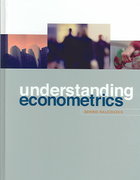Question
3.[Monetary Policy] The Federal Reserve has a dual mandate, which means that its monetary policy goals are to foster economic conditions that achieve both stable
3.[Monetary Policy] The Federal Reserve has a dual mandate, which means that its monetary policy goals are to foster economic conditions that achieve both stable prices and maximum sustainable employment (Source: Chicago Fed). In contrast, the European Central Bank (ECB) has a single mandate that commits it to maintaining price stability above all. In this question, we will explore how different mandates of central banks lead to divergent monetary policies.
a. Suppose Country A is experiencing a recession. The inflation rate is 3% and will be 2% when aggregate demand equals potential GDP. The central bank has a single mandate similar to ECB and has an inflation rate goal of 2%. What actions would Country A's central bank take, if any?
b. If the central bank of Country A prioritizes reducing unemployment as well as inflation, what actions would it take?
c. Compare your answers in b) and c). What are the advantages and disadvantages of a central bank like the Fed having a dual mandate?
Step by Step Solution
There are 3 Steps involved in it
Step: 1

Get Instant Access to Expert-Tailored Solutions
See step-by-step solutions with expert insights and AI powered tools for academic success
Step: 2

Step: 3

Ace Your Homework with AI
Get the answers you need in no time with our AI-driven, step-by-step assistance
Get Started


